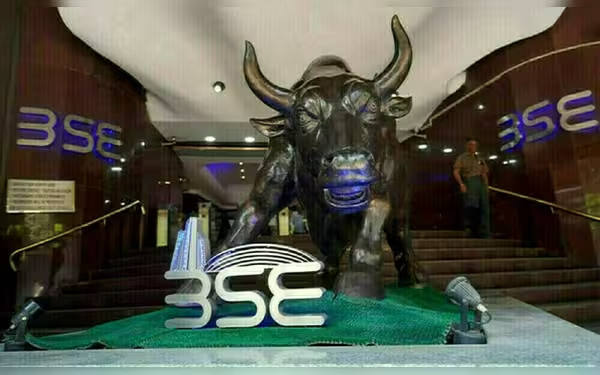Saturday, November 16, 2024 05:54 PM
Indian Stock Market Faces Correction Amid Rate Concerns
- Nifty 50 drops 1.36%, enters correction territory.
- Foreign selling and inflation raise investor anxiety.
- Swiggy's shares surge despite market downturn.
 Image Credits: brecorder
Image Credits: brecorderIndian stock market sees major correction as Nifty 50 drops 1.36% amid rate concerns and foreign selling.
On Wednesday, a significant downturn was observed in the Indian stock market, with major indices, including the Nifty 50, slipping into correction territory. This decline was primarily driven by diminishing expectations of an interest rate cut in the near future, which has compounded existing worries about lackluster earnings and ongoing foreign capital outflows.
The NSE Nifty 50 index experienced a notable drop of 1.36%, marking its largest decline in almost six weeks, and closed at 23,559.05 points. This figure is 10.34% lower than the record high reached on September 27, indicating that the index has entered a technical correction phase. Similarly, the BSE Sensex, which comprises 30 stocks, fell by 1.25% to finish at 77,690.95, just shy of entering correction territory itself.
In contrast, the broader market faced even harsher realities. The small- and mid-cap stocks, which are more focused on domestic markets, saw declines of 3% and 2.6%, respectively, pushing them firmly into correction territory. Saurabh Jain, an assistant vice president of retail equities research at SMC Global Securities, commented, "This sell-off could intensify further, and it’s just a matter of time before we go a bit deeper into correction." He emphasized that the Indian markets had been "priced to perfection," and the disappointing earnings season has only heightened investor anxiety.
Moreover, Jain pointed out that the ongoing foreign selling, rising domestic inflation, and uncertainty regarding the potential impacts of a new U.S. administration under President-elect Donald Trump on emerging markets have contributed to the bleak outlook. Recent data revealed that India’s retail inflation surged to a 14-month high in October, which dashed hopes for an interest rate cut in December and raised concerns about a potential slowdown in consumer spending.
Despite the challenges, it is noteworthy that small- and mid-cap stocks have outperformed the benchmarks since the beginning of 2023, thanks to steady inflows from domestic retail and mutual fund investors. However, some analysts believe that the correction is not yet complete. Pratik Oswal, chief of passive business at Motilal Oswal Asset Management Company, stated, "Segments in broader markets have not corrected enough, and valuation concerns remain, lending scope for near-term pressure." This suggests that investors should remain cautious as the market adjusts to the current economic landscape.
Interestingly, amidst the market turmoil, the online food delivery platform Swiggy managed to defy the trend, surging approximately 17% on its market debut. Conversely, Hyundai Motor India faced a setback, with its shares dropping 3.6% after reporting a decline in profits for the September quarter, attributed to lower domestic sales and geopolitical uncertainties.
The current state of the Indian stock market reflects a complex interplay of factors, including inflationary pressures, disappointing earnings, and foreign investment trends. As investors navigate this challenging environment, it is crucial to stay informed and consider the broader economic indicators that may influence market movements in the coming months. Understanding these dynamics can help investors make more informed decisions and potentially identify opportunities even in a correction phase.













